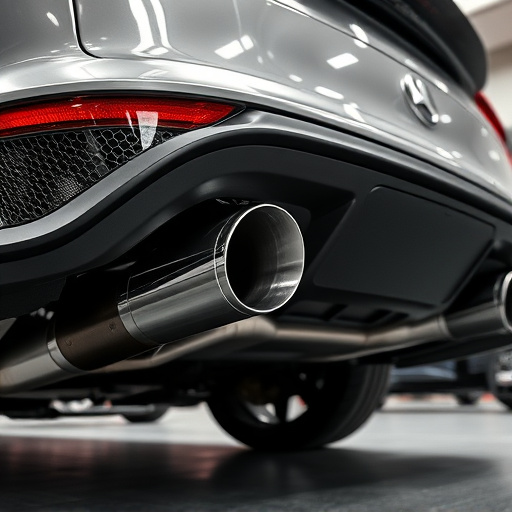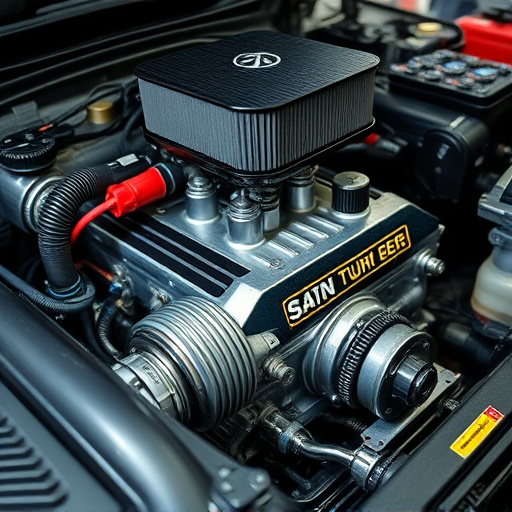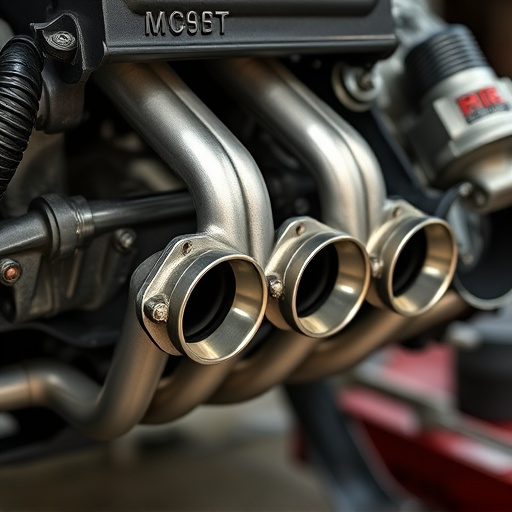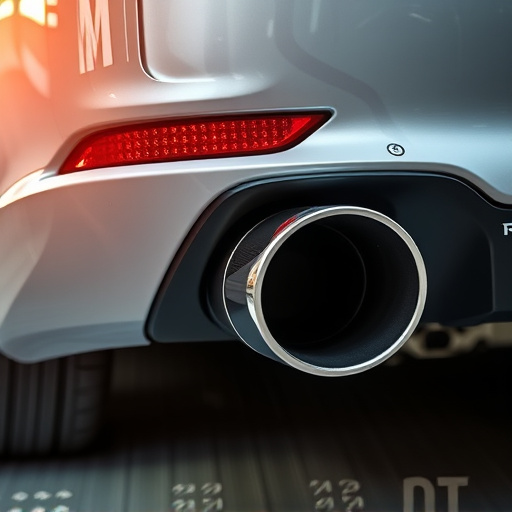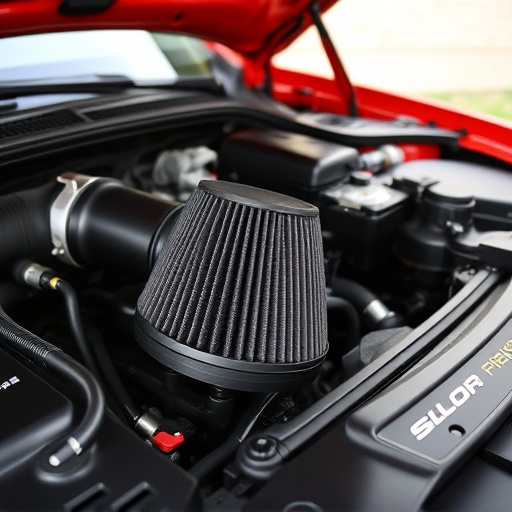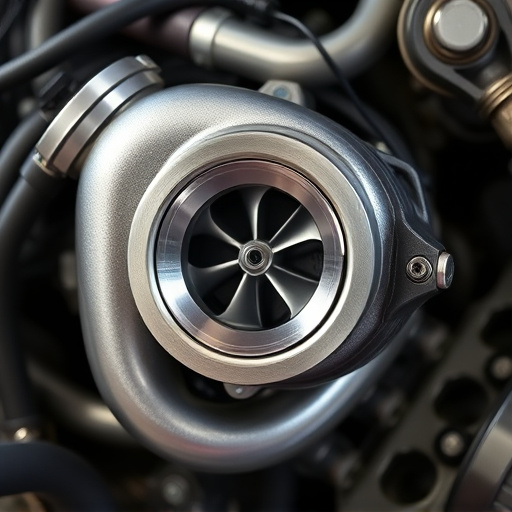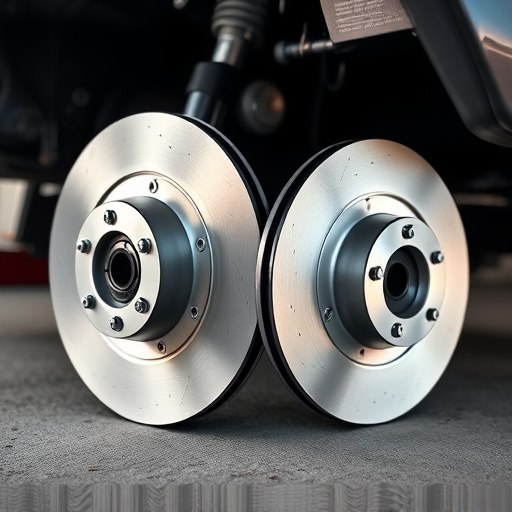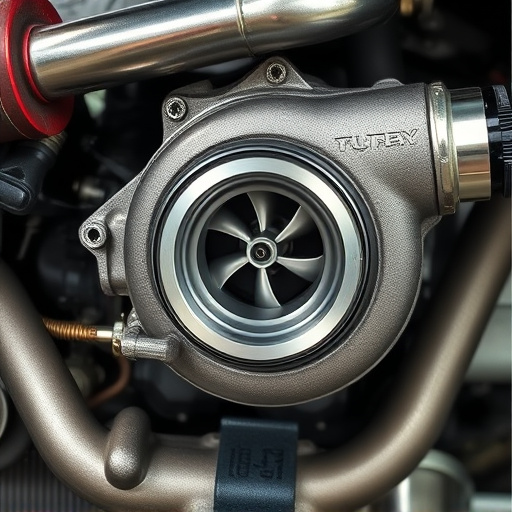Exhaust systems for cars are intricate networks designed to expel burnt gases efficiently, enhancing engine performance and fuel economy. Key components include pipes with tips for reduced backpressure, manifolds gathering gases from multiple cylinders, and mufflers quieting noise without sacrificing power. These systems contribute to a smoother ride and improved vehicle dynamics by benefiting the suspension. Modern exhaust systems with catalytic converters (cat back exhaust) offer better engine efficiency, reduced emissions, and refined noise profiles, complementing upgrades like air filters and optimized suspensions for overall enhanced performance across various driving conditions.
Exhaust systems are a crucial component in any vehicle’s engine performance. These systems facilitate the removal of burnt gases, improving overall engine efficiency and power output. By understanding the role and components of exhaust systems, we can grasp how they enhance combustion processes, reduce backpressure, and optimize gas flow. This article explores these key aspects, highlighting the benefits of efficient exhaust systems for cars, from improved fuel economy to increased horsepower.
- Understanding Exhaust Systems: Their Role and Components
- How Exhaust Systems Enhance Engine Performance
- Benefits of Efficient Exhaust Systems for Cars
Understanding Exhaust Systems: Their Role and Components
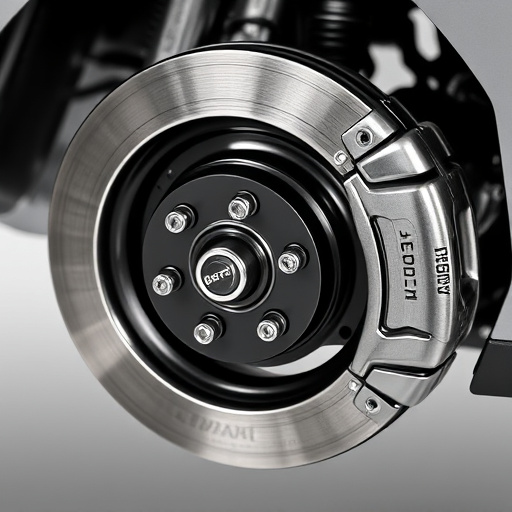
Exhaust systems for cars are intricate networks designed to facilitate the expulsion of burnt gases from an internal combustion engine. They play a pivotal role in enhancing both engine efficiency and performance. The system comprises several key components, each serving a specific function.
Starting with the exhaust pipe, which is often adorned with exhaust tips, it acts as the main conduit for hot gases to escape. These pipes are engineered to minimize backpressure, allowing for smoother flow and better utilization of the engine’s power. Moving inward, the exhaust manifold collects exhaust gases from multiple cylinders, while exhaust mufflers work to suppress noise generated during the combustion process. By dampening these sounds, they contribute to a quieter ride without compromising performance. Suspension components, though not directly involved, also benefit indirectly by ensuring a smooth and stable drive.
How Exhaust Systems Enhance Engine Performance
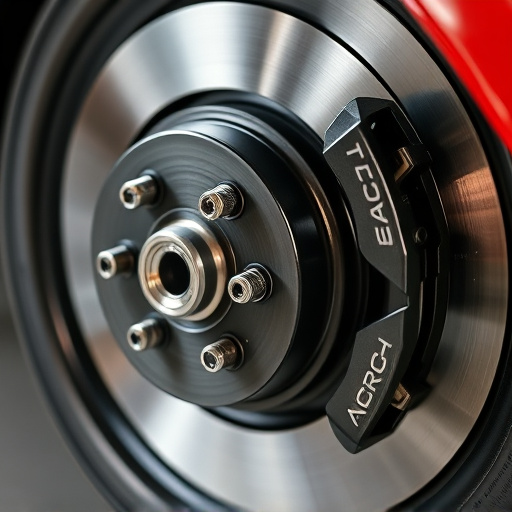
Exhaust systems play a pivotal role in enhancing engine performance for cars. One of its primary functions is to facilitate efficient gas expulsion from the combustion chamber, which reduces backpressure and allows for better air intake. This improved airflow results in increased fuel burning efficiency, leading to enhanced engine power and torque output. Furthermore, modern exhaust systems often incorporate catalytic converters (cat back exhaust) that not only reduce harmful emissions but also optimize engine performance by minimizing restrictions.
In addition to these benefits, high-quality exhaust systems can complement other performance upgrades like performance air filters and optimized suspension components. By ensuring optimal gas flow and minimizing friction, exhaust systems contribute to overall vehicle dynamics, making the car more responsive and powerful. This synergy between different parts of a car’s ecosystem ensures that each component works in harmony to deliver peak performance on the road.
Benefits of Efficient Exhaust Systems for Cars

Efficient exhaust systems play a pivotal role in enhancing the overall performance of cars. By facilitating smoother and faster expulsion of burnt gases, these systems significantly improve engine efficiency. This results in better fuel combustion, leading to reduced fuel consumption and lower emissions. Moreover, the improved airflow allows for increased oxygen supply to the engine, boosting its power output.
Additionally, advanced exhaust systems often incorporate components like exhaust tips that contribute to a more refined noise profile, enhancing the driving experience. Beyond aesthetics, efficient exhaust systems also play a crucial role in maintaining optimal vehicle dynamics. Unlike some who prioritize modifications such as suspension kits, exhaust systems focus on streamlining core functionalities, ensuring the car remains balanced and responsive under various driving conditions—from city streets to open highways.
Exhaust systems, far from being mere noise reducers, play a pivotal role in enhancing engine efficiency and power. By understanding their components and functions, we can appreciate how they facilitate better gas flow, reduce backpressure, and optimize combustion. This not only improves vehicle performance but also contributes to more fuel efficiency, lower emissions, and a smoother driving experience. Investing in high-quality exhaust systems for cars is thus a smart move for both enthusiasts and everyday drivers alike.
